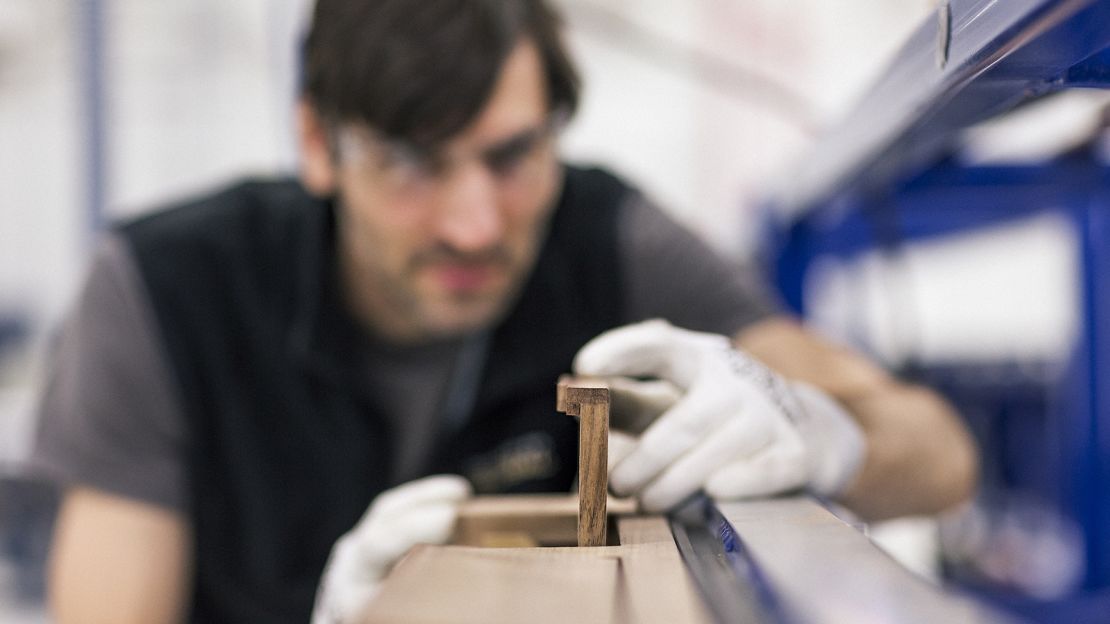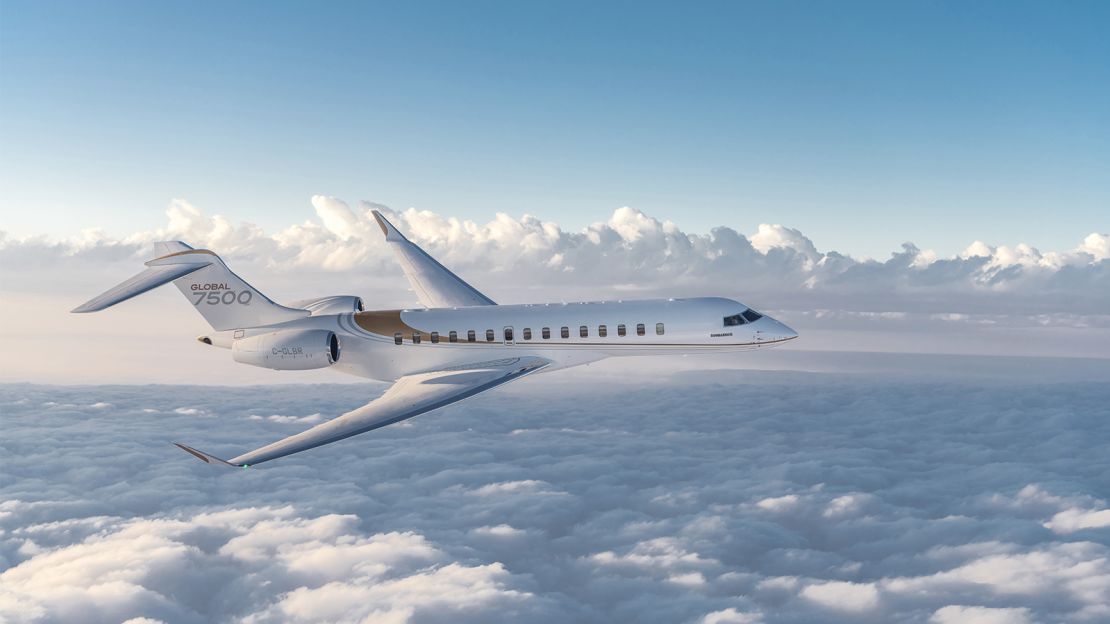Just like in the artisan neighborhoods of old European towns, each section of the factory floor is dominated by a particular craft.
Carpentry in one corner, upholstery in another – some areas look more like an artistic atelier than an aircraft plant.
We are at Bombardier’s Centre of Excellence, a facility on the outskirts of Montreal, Canada, where the cabin interiors of some of the world’s most luxurious private jets come into being.
Business jet manufacturing is a meeting of two different worlds: Each jet is, at the same time, a high-tech machine and a piece of artisan work.
Technology and craftsmanship
Modern executive jets exhibit cutting-edge sophistication in more than one way.
The latest models in the market are pretty much at the edge of the technology envelope. High-end aircraft such as the Bombardier Global 7500, partly produced in the Montreal plant, or its direct competitor, the Gulfstream G650, can fly over 7,700 nautical miles at speeds close to the sound barrier.
However, technology alone won’t get you the sales.
How you fit the cabin interior can be nearly as important. Private jet buyers can be pretty demanding when it comes to matters of comfort and style.
This is not so different from choosing the perfect decor for your home – but with the added complexity that, as luxurious as your tastes might be, it all needs to fit into an eight-foot by six-foot flying metal tube.
A monumental task
Much of the work being done at the Centre of Excellence has to do with optimizing “monuments.” That’s industry parlance for the different items that furnish the cabin, so that they can be installed on board the business jets without penalizing the machine’s performance.
Naturally, luxurious high-end materials are par for the course. Then there’s the question of style.
Jets used by corporations or by on-demand charter operators serving a diverse clientele tend to go for a more neutral look.
Ian Moore, chief commercial officer at VistaJet, an executive jet operator with a fleet of 70 Bombardier aircraft, tells CNN Travel, “We have a clientele that is made of global citizens, across all continents, so it is important that the cabin decor can be globally accepted, that it can accommodate all cultural nuances.
“At the same time, consistency is essential. Customers come to expect a certain standard and style. This is why we have the same look and feel across all our fleet.”
‘Intimate atmosphere’
People that fly private may want their jets to be a reflection of their own lavish homes.
“You can normally tell from the cabin configuration whether the aircraft has a corporate or personal use,” says US pilot Todd McCutchan, who’s flown Bombardier Global Express aircraft for clients in the Middle East, Europe and Asia.
“The former tends to have a more dense configuration and more neutral decor. In jets owned by individuals, instead, you often see a more customized cabin interior. It’s like like being invited to the owner’s personal apartment.”
He adds: “My experience, when flying long-haul for high-net-worth individuals, is that there are rarely more than five or six people on board, far below the maximum number it can carry. It is a more intimate atmosphere.”
Panels and seating

Wooden and leather-padded surfaces abound in the typical business jet, but there’s more to it than meets the eye.
For example, a broad range of expensive woods may be used (as long as they pass flammability tests), but its application is often restricted to the uppermost surface layers.
Wood panels undergo successive manual and mechanical polishing procedures until they get the perfect finish. They are then glued onto a strong, light composite material.
The surfaces can be customized to match customer taste, be it light or dark wood, glossy or matte.
Move a few meters away from Bombardier’s carpentry area and it feels entering a textile factory. Staff are operating sewing machines and cutting leather and cloth patches of different sizes and shapes.
These are to cover the padded areas of the cabin, such as seats, which are entirely assembled and upholstered at the plant.
Row upon row of naked metal frames, destined to become seats, stand on one corner of the floor, waiting to be upholstered and fitted with electronics.
The final touches
Anyone lucky enough to be on the waiting list for one of Bombardier’s new executive jets won’t be coming here to pick it up, but to the nearby Laurent Beaudoin Completion Centre, about a mile away.
The Centre of Excellence is usually out of bounds, even for high-powered customers.
Besides its role as a completion and delivery center for a number of Bombardier’s models, such as the Global 5000/6000, the Global 7500 and, soon, the upcoming Global 5500/6500, the Laurent Beaudoin Completion Centre is also a showroom for prospective jet owners.
Just like at any high-end furniture store or home decoration studio, buyers come here, often surrounded by large entourages, to get a feel for their new shiny purchase and to add their personal touch to it.
A wide range of samples are on display, from wood inlays, to bathroom tiles, carpet designs, fabrics and leather. They can also select accessories such as linen and cutlery.
Paint shop

Another element of personalization comes through painting, which is also done on site. The aircraft paint scheme can be customized with a personal logo, family crest or some artistic design of choice.
Even if customers opt for a more traditional color scheme, the jet will still go through the paint shop before being delivered, since all aircraft are flown “green” – with just a coat of oxidized paint – to Montreal after being assembled at Bombardier’s Toronto plant.
The Montreal delivery center is likely to see busy days ahead, with Bombardier expecting some 150-155 private jet deliveries in 2019, compared to the 135 of 2018.
A string of new jet models is helping the industry keep numbers up.
While Bombardier delivered its first Global 7500 last December, its arch-rival Gulfstream is also busy introducing new aircraft.
September 2018 saw the delivery of the first Gulfstream G500, while the first G600, a similar but slightly longer model, is expected before the end of this year.
Demand for both types of aircraft have contributed to General Dynamics, owner of Gulfstream, raising its guidance to 145 deliveries in 2019, up from 121 in 2018.
Competition is certainly intensifying at the top of the executive jet market.




















